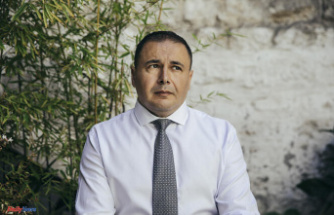The tax and duty burden in Germany is higher than it has ever been since reunification - as shown by preliminary figures from the Federal Ministry of Finance. So it's high time to outsmart the tax authorities. You can do that with these tips:
The Treasury collects more money from the citizens than ever before. So it is legitimate to use legal tricks to lower the tax burden. There is still a lot in there just before the turn of the year.
Inflation Compensation Premium
The inflation rate in Germany recently rose to 10.4 percent. Almost everything has become more expensive: refueling, heating, groceries or going to restaurants. Against this background, the state grants a premium to compensate for runaway inflation. The employer may pay his employees a bonus of up to 3000 euros, which does not incur any taxes or social security contributions.
This premium can still be paid until December 31, 2024. It is irrelevant whether the employer renders his service all at once or spread over several points in time. There can also be cash payments as well as benefits in kind. A conversation with the boss could therefore be worthwhile.
advertising expenses
They are among the classic tax-saving tips. The Treasury automatically grants the so-called employee lump sum, which has risen from 1000 to 1200 euros this year. Up to this amount, employees can deduct all costs incurred as a result of the work. This includes, for example, office supplies or a new laptop.
It gets interesting when the advertising costs exceed the 1200 euro mark. Then you can save even more taxes. So it's worth considering making one or the other purchase this year. However, the expenses must then be proven to the tax office.
Individual expenses up to a net amount of 952 euros can then be fully deducted from tax for this year. Larger amounts, on the other hand, have to be spread over several years, i.e. written off. An exception applies to IT expenses such as laptops or software. They are fully deductible immediately.
Homeoffice
For every day that employees work from home due to the corona virus, an additional five euros can be added as income-related expenses and thus spared from being accessed by the tax authorities. However, there is an annual upper limit of 600 euros. And, as mentioned, the total income-related expenses must exceed the annual lump sum of 1200 euros for working from home to have a tax impact.
Workspace
If the employer does not have a job at all, taxpayers who work from home can deduct 1250 euros per year from their taxes. These include pro rata apartment rents or depreciation, electricity, heating and water as well as costs for furnishings, i.e. the purchase of a desk or office chair. However, it must clearly be a study. There shouldn't be a sofa or even a bed.
care costs
For each child up to the age of 14, parents can claim up to 6,000 euros in childcare costs per year from the tax office. Two thirds of these costs, i.e. 4000 euros, can be deducted from taxable income. But that's not all.
The employer may support his employees with an additional 600 euros, which do not have to be taxed. The prerequisite is that the children are no older than 14 years old. The tax office also recognizes this tax-free payment if people in need of care are cared for rather than children. These costs must be proven. The best way to do this is with an invoice and a bank transfer.
Handicraft costs
One of the classic tax-saving tips is the cost of craftsmen. The Treasury recognizes payments of up to 6000 euros per year. Of these, 20 percent, i.e. 1200 euros, can be deducted from the tax. However, this does not apply to material costs, but only to labor and travel costs as well as machine rental. These should be clearly stated on the invoice. The tax office does not accept estimates. In addition, the corresponding invoices must be paid by bank transfer or EC card.
It is irrelevant when the corresponding work is carried out. Rather, it is decisive when the invoice is issued and paid. It is therefore possible to agree on tradesman work in the last few weeks of the year, for example for spring 2023, and to use an advance invoice for tax purposes this year. Taxpayers should therefore check whether they have already exhausted the upper limit of 6000 euros. If not, an invoice for upcoming work would be tax deductible.
household services
According to the same principle, the tax office treats services that are carried out in or at least in the vicinity of the household. These include, for example, cleaning and outpatient care work, gardeners or winter service. Here, a total of 20 percent of a total of 20,000 euros can be claimed from the tax office per year. The corresponding tax savings therefore amount to a maximum of 4000 euros. Here, too, a bank transfer or payment with an EC card is to be ensured.
Donate
Doing good and saving taxes - this is possible with donations to charitable organizations. Up to an amount of 300 euros, the tax office is satisfied with an account receipt. In the past, this was only possible up to an upper limit of 200 euros. For higher amounts, there must be a donation receipt, which must be presented to the tax office upon request. The Treasury regards donations as special expenses. You are tax deductible up to 20 percent of your annual income.
dr Michael Bormann is a tax expert and has been a founding partner of bdp Bormann Demant since 1992












